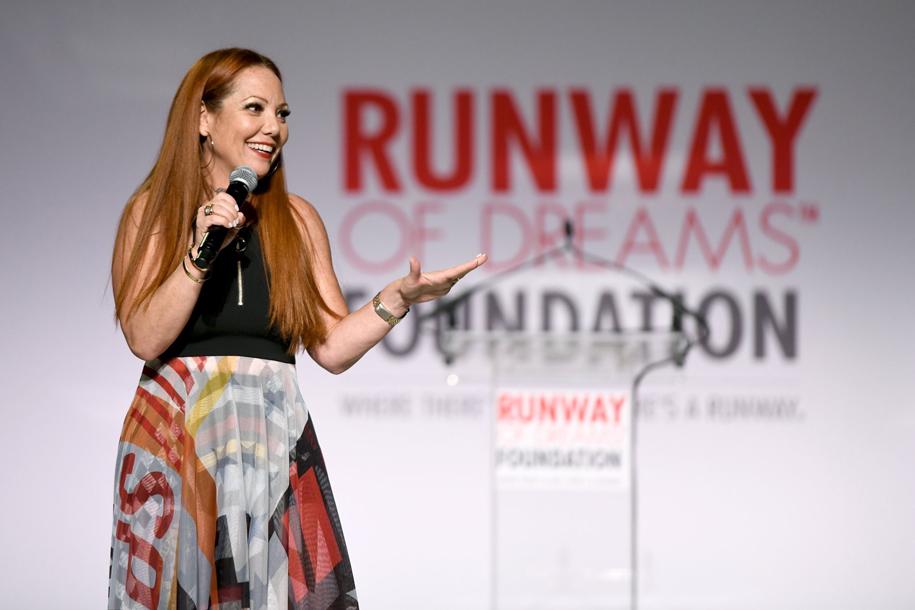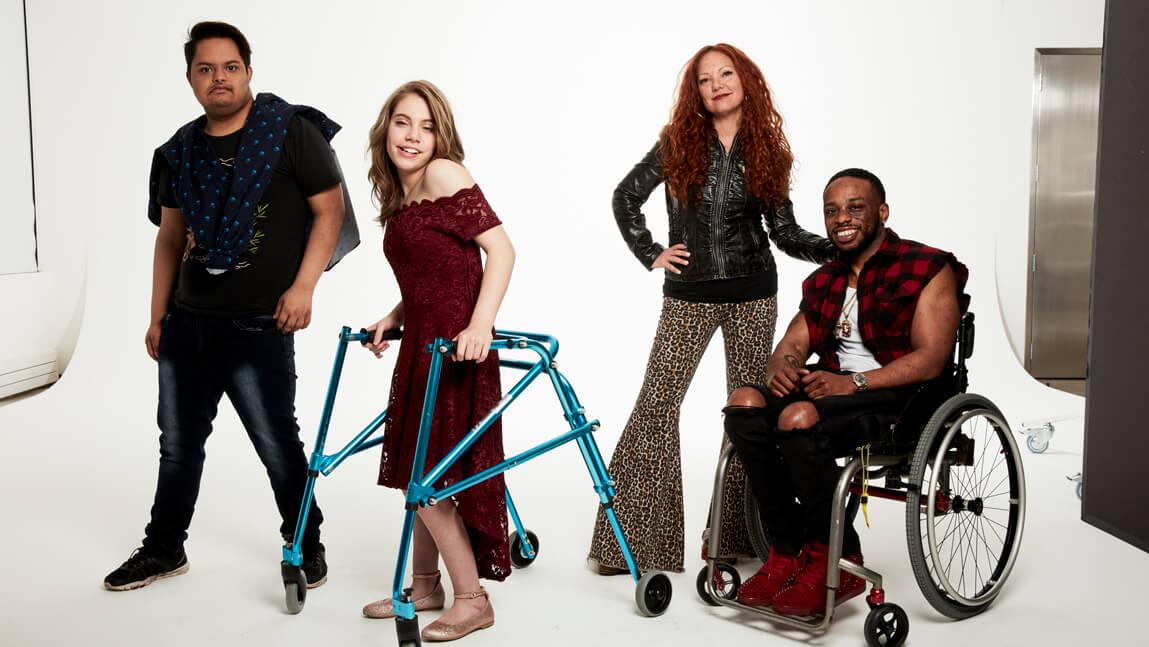Have you ever peered cheerlessly into your closet, packed so full of clothing and exclaimed in exasperation, “I have nothing to wear”? This complaint is no hyperbole for people with disabilities, for whom the struggle goes beyond merely keeping up with the latest trends. That’s where Mindy Scheier ’93, founder of the Runway of Dreams Foundation, is hoping to effect a sea change. She’s making inroads in convincing the fashion industry to pay more attention to the disabled community, the largest minority population in the world, and help make adaptive clothing as commonplace as plus- and petite-sizes.
Scheier says that even as a little girl she had a penchant for everything chic, but her real sortie into style began 32 years ago, when she came to UVM to major in fashion design. She spent more than 20 years in the industry, working on the design team for the INC collection and as a stylist for Saks Fifth Avenue, without ever being exposed to adaptive design. Until the day her son Oliver, who has a rare form of muscular dystrophy, asked for a pair of jeans just like his friends’. As Scheier sat at her kitchen table ripping apart and retooling a pair of jeans that would fit over her son’s leg braces and allow him to use the restroom independently, she had an epiphany: there are many others like Oliver who struggle with zippers, snaps, buttons, and constricting fabrics.

“I felt that I was in a unique position to take my background and have a small goal—and I say that with a lot of sarcasm—of changing the fashion industry to be inclusive of people with disabilities,” she says.
Scheier embarked on a year of intensive research on modifications that would meet the disparate needs of the differently-abled, from those in wheelchairs to those with autism or limb differences.
“I had focus groups and surveys. I spoke to anybody that would talk to me. I went to facilities and hospitals and got a very good understanding of the commonalities between vastly different disabilities and clothing challenges,” she says. “So by the time I approached the industry, I really knew what I was talking about and had some solid data behind me.”
And the fashion gods listened. Following its launch, Runway of Dreams partnered with Tommy Hilfiger on the first mainstream adaptive clothing line for kids. Other major brands like Nike, Kohl’s, Target, and JCPenney have since added an adaptive category to their offerings.
Runway of Dreams now awards scholarships and summer internships to students who are advancing adaptive design and to those with disabilities who wish to pursue careers in fashion. The foundation also offers organizations serving people with disabilities wardrobe grants for the purchase of adaptive apparel. In 2019, Scheier created her second venture, Gamut Talent Management, to provide individualized talent management representation to people with disabilities for television, film, or commercial appearances, as well as product development consultation. Scheier says she hopes these endeavors help to give more visibility to the disabled community, whether it’s in the entertainment industry, on runways, or living everyday life in clothing that’s both functional and fashionable.
“I really feel that we are rebranding who people with disabilities are in the public eye,” she says. “Between the two entities, I hope that within the next five years, people with disabilities will just be considered people! People who have different abilities, different-shaped bodies, but are considered the same as everyone else.”
Scheier is the 2021 recipient of the UVM Alumni Association’s Alumni Achievement Award, given annually to alumni with outstanding achievements recognized at the local, state, or national level. If you would like to make a nomination for the 2022 award, please visit alumni.uvm.edu/awards22.
